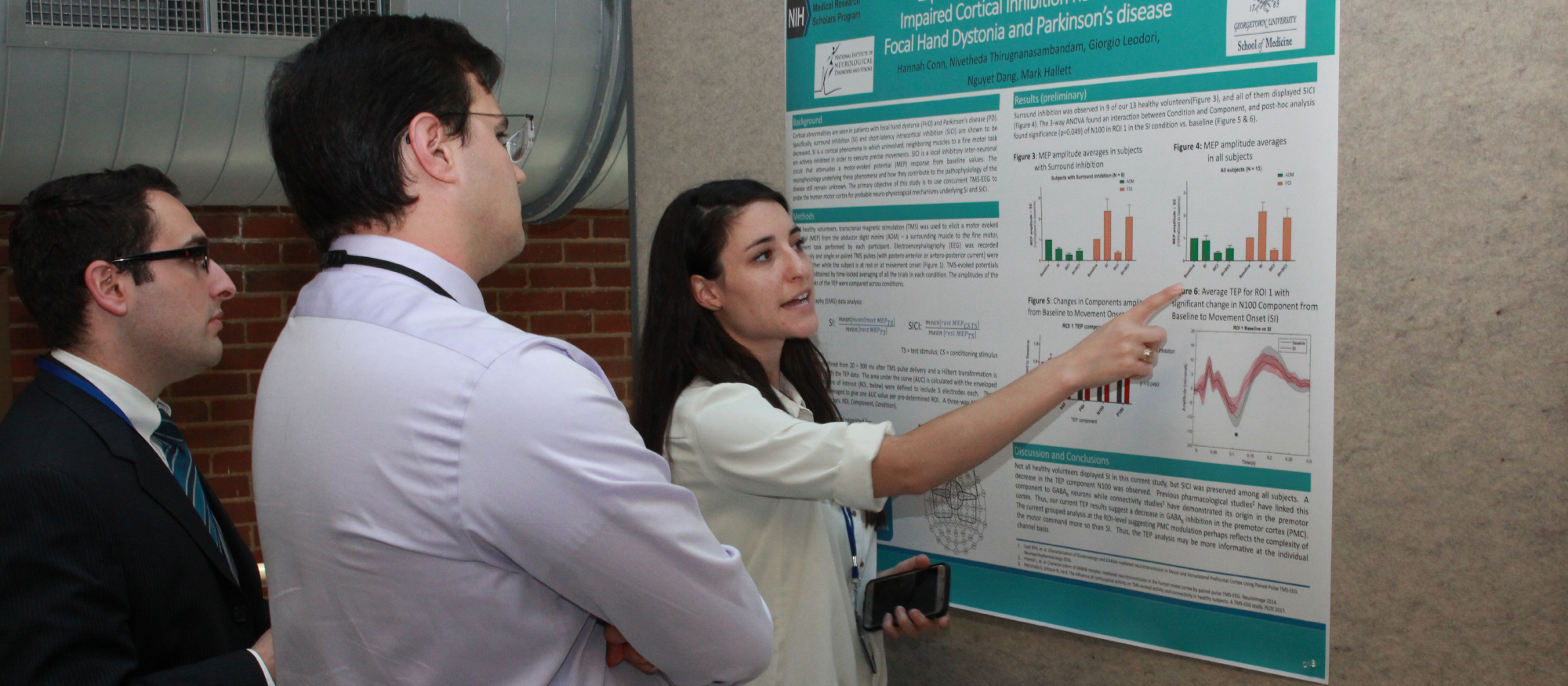Content on this webpage is provided for historical information about the NIH Clinical Center. Content is not updated after the listed publication date and may include information about programs or activities that have since been discontinued.
 On May 8, 2017, Hannah Conn, far right, participates in the MRSP poster presentation. Conn, a 2016-2017 MRSP scholar, is from Georgetown University School of Medicine.
On May 8, 2017, Hannah Conn, far right, participates in the MRSP poster presentation. Conn, a 2016-2017 MRSP scholar, is from Georgetown University School of Medicine.
Assessing how vitamin D impacts babies' health; using genetic modification to enhance the body's natural immune cells to prevent disease; and finding ways to predict which cancers need treatment versus those that can be followed safely with observation. These were just a few of the topics tackled by the 2017 Medical Research Scholars Program (MRSP) graduating class.
The NIH MRSP is a yearlong enrichment program which provides mentored training to creative, research-oriented students at the NIH campus in Bethesda, Md. Mentors are NIH investigators with established research programs.
One of the largest classes in the program's history wrapped up its year of studies during the annual two-day scientific presentation event. In mid-May, 52 MRSP participants presented oral and poster presentations in the NIH Clinical Center showcasing their research.
The departing scholars included 50 medical and two dental students from 35 different educational institutions. They spent the past year at the NIH engaged in mentored clinical, translational or basic research.
This summer, the NIH will welcome forty-two new talented and diverse students as a part of the incoming class of MRSP participants. The students represent 34 U.S.-accredited universities. The MRSP received a record number of applications for the 2017-2018 class and selected 39 medical, two dental and one veterinary students. Six of the 42 participants have previous NIH research experience.
The MRSP is co-sponsored by the NIH and other private partners via grants and other contributions to the Foundation for the NIH.

